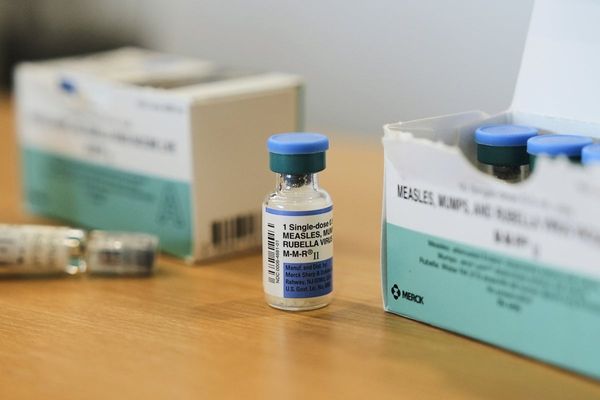
You’re not alone if you’ve ever glanced at your dashboard and noticed a warning light flickering on. Many drivers see these lights, sigh, and keep driving, hoping the issue will resolve itself. But when it comes to your car’s fuel injectors, ignoring those dashboard alerts can lead to bigger headaches. Fuel injectors play a crucial role in your engine’s performance, and when they act up, your car tries to tell you, often through those little lights you might be tempted to ignore. Understanding why your car’s fuel injectors are triggering dashboard lights can save money, prevent breakdowns, and keep your vehicle running smoothly.
Let’s break down the seven most common reasons your car’s fuel injectors are setting off those dashboard warnings, and what you can do about them.
1. Clogged Fuel Injectors
Clogged fuel injectors are one of the most frequent culprits behind dashboard warning lights. Over time, dirt, carbon deposits, and fuel additives can build up inside the injectors, restricting fuel flow to your engine. When this happens, your car’s onboard computer detects the imbalance and triggers a warning light, often the “Check Engine” light. If unchecked, clogged injectors can lead to poor fuel economy, rough idling, and even engine misfires. Regularly using high-quality fuel and scheduling periodic injector cleanings can help prevent this issue.
2. Faulty Injector Electrical Connections
Fuel injectors rely on precise electrical signals to operate correctly. The injector may not receive the right signal if there’s a loose connection, corroded wiring, or a damaged harness. This can cause the engine control unit (ECU) to detect a malfunction and illuminate a dashboard warning. Electrical issues can be tricky to diagnose without proper tools, so if you suspect a wiring problem, it’s best to have a professional mechanic inspect your vehicle. Ignoring these warnings can lead to more severe electrical failures and costly repairs.
3. Leaking Fuel Injectors
A leaking fuel injector can cause many problems, including triggering dashboard lights. When an injector leaks, it allows excess fuel into the combustion chamber, which can throw off the air-fuel mixture. This imbalance is quickly detected by your car’s sensors, prompting a warning light. Leaking injectors can also lead to poor fuel efficiency, increased emissions, and even engine damage if not addressed promptly. If you notice a strong fuel smell or a drop in gas mileage, don’t ignore the warning—check your injectors.
4. Injector Timing Issues
Modern engines rely on precise timing to inject fuel at the optimal moment for combustion. If the timing is off—due to a faulty sensor, worn timing components, or a malfunctioning ECU—your dashboard may light up. Timing issues can cause rough running, hesitation, and even stalling. These problems are often accompanied by a “Check Engine” light or other warning indicators. Addressing timing issues early can prevent serious engine damage and keep your car running efficiently.
5. Contaminated Fuel
Using contaminated or poor-quality fuel can wreak havoc on your fuel injectors. Water, dirt, or other impurities in the fuel can clog or damage the injectors, leading to dashboard warnings. Contaminated fuel can also cause your engine to run poorly, reduce power, and increase emissions. To avoid this, always fill up at reputable gas stations and consider using a fuel filter. If you suspect contaminated fuel, have your system inspected and flushed immediately.
6. Failing Oxygen Sensors
While not part of the fuel injector, oxygen sensors are vital in monitoring the air-fuel mixture. If an oxygen sensor fails, it can send incorrect data to the ECU, causing it to adjust the fuel injectors improperly. This often results in dashboard warning lights, leading to poor engine performance. Replacing faulty oxygen sensors promptly can help maintain proper injector function and prevent unnecessary dashboard alerts.
7. Software or ECU Glitches
Sometimes, the issue isn’t mechanical at all. Modern vehicles rely heavily on software to control engine functions, including fuel injection. A glitch or bug in the ECU’s programming can mistakenly trigger dashboard lights, even if the injectors work fine. While rare, these software issues can usually be resolved with a system update or ECU reset at your dealership or trusted mechanic. If you’ve ruled out all other causes, don’t overlook the possibility of a software hiccup.
Don’t Let Dashboard Lights Become Costly Surprises
Ignoring dashboard lights related to your car’s fuel injectors can turn a minor issue into a major repair bill. By understanding the common reasons these warnings appear—like clogged injectors, electrical problems, leaks, timing issues, contaminated fuel, sensor failures, and software glitches—you can take proactive steps to keep your car running smoothly. Regular maintenance, prompt attention to warning lights, and using quality fuel are simple ways to avoid bigger problems down the road.
Have you ever ignored a dashboard light and regretted it later? Share your story or tips in the comments below!
Read More
Clever Car Review: 2007 Volkswagen Jetta
Challenge: Premium Fuel Car Versus Regular Octane Truck
The post 7 Reasons Your Car’s Fuel Injectors Are Triggering Dashboard Lights You Ignore appeared first on Clever Dude Personal Finance & Money.







